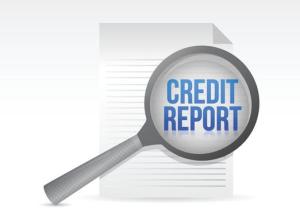Getting divorced can be one of the most stressful things you’ll ever have to endure. If you have children there’ll be the issues of who has custody and maybe visiting rights. You or your attorneys will need to determine how to split your finances as well as your furniture and personal possessions. And, of course, the more stuff you have and the more you and your spouse earn, the more complicated things will be. But there is one piece that’s easy to overlook and that’s your credit score.
Why your credit score will take a hit
Despite what many people think a divorce per se will not damage your credit score. This is because your credit score and your spouse’s credit score are different. It’s not like you had a joint credit score and getting divorced will cut your score by 50%. However, there are several reasons why a divorce will damage your credit score. First, your expenses will likely go up since you’re no longer splitting them. This will make it more difficult for you to keep up with your bills. Second, it’s likely that you and your spouse had some debts when you divorced. If they are not paid off immediately they will end up being the responsibility of one of you. If that person doesn’t pay them off then both your credit reports and ultimately your credit scores will be damaged forcing you to need to rebuild your credit after a divorce. And third, the harsh truth is that there can be identity theft. It’s unfortunately very common for one spouse to “borrow” the ex’s personal information to get new utility services, new credit cards, an auto loan, etc.
Divorce can lead to bankruptcy
It’s also sad but true that a divorce can lead to bankruptcy. If this happens to you it might be because your finances just got stretched over the limit, as you’re now required to pay for new expenses such as alimony or childcare. But some people are actually pushed into filing for bankruptcy by his or her former spouse. As an example of this let’s suppose that you owned a house with your ex spouse but you can’t sell it because it’s upside down. Your ex agrees to pay the mortgage but then doesn’t do so. If you want to keep the house you could end up having to file for bankruptcy in order to save it. Or just to get rid of the responsibility of having to pay on it.
Making your credit score a priority
There are numerous things that need to be taken care of as the result of a divorce. This could make it easy for you to miss paying a bill. And believe it or not just one late or missed payment could cause what would otherwise be your excellent credit score to fall by 50, 75 points or more. After your divorce you will need good credit to get a place to live and to get new utility service without having to make a deposit. Plus, the stain on your credit report of having missed a payment can come back to haunt you as it will stay in your credit reports for seven years.
Get your credit reports
One of the most important things you should do post-divorce is to get your credit reports. They are available free from the three credit reporting bureaus – Experian, TransUnion and Equifax. They are also available free on the website www.annualcreditreport.com. While this site makes it possible to get all three of your credit reports simultaneously most financial experts say it’s better to get them one at a time every four months. This becomes a way to monitor your credit year round without having to pay a credit monitoring service.
There are several reasons why you should be getting your credit reports. First, it’s so you can see all your debts. Any debts that were the joint responsibility of the two of you should be paid off as quickly as possible. This is because you are legally responsible for paying off any joint debts and getting divorced doesn’t change that.
It’s also possible that there are errors in your credit reports that are dragging down your credit score. When you review your credit reports look for purchases you don’t remember making or companies you don’t remember having done business with. If you find errors be sure to dispute them with the appropriate credit bureau. You should do this in writing so that you will have a paper trail. If you are able to get erroneous items removed from your credit reports your credit score should get a nice bounce.
Rebuilding your credit
If you need to rebuild your credit after a divorce, take heart. While you can’t change the past, you can make sure that you pay all your bills on time going forward. Recent information about how you handle your credit tends to have a greater impact on your score then older information. This means that paying your bills on time should ultimately lead to a significant improvement in your credit score. If you lost your credit cards for some reason or just don’t have one then get a new, secured credit card. This is where you deposit money at a bank or credit union and then can use the card so long as you have a balance. If you do get one of these cards make sure that if you use it sensibly this will be reported to the three credit bureaus, as you need this in order to rebuild your credit score. You might also be able to get a personal line of credit secured by a savings account. This would be yet another step to rebuild your credit after a divorce.
Getting divorced is difficult, use these tips to get back on track and rebuild your credit once your finances are separate again.







